After the government criticised the food and drink industry for its role in creating the UK's £12bn food waste mountain last week, new research from The Grocer reveals a lack of recycling facilities rather than confusion over date labelling is the key factor.
An exclusive poll carried out by YouGov for The Grocer of more than 2,000 people across the UK found six out of 10 households were sending food waste to landfill.
However, a fifth of those who took part in the survey said the biggest barrier to recycling items was a lack of relevant bins and collection service.
Only 143 of England's 322 local authorities currently collect food waste and just a handful more are planning to do so, according to figures from Friends of the Earth. In Wales, the only country in the UK where every local council has separate food waste bins, 80% of people surveyed said they regularly recycled surplus food. The worst results were in Scotland, where just 30% of people recycled food waste, with the South East of England only marginally better at 38%.
Melanie Leech, director general of the FDF, said the food and drink industry was exasperated by the lack of leadership being shown by the government when it came to food recycling.
"Our members have halved food waste to landfill and hope to achieve zero waste to landfill by 2015," she said. "As an industry we need Defra to show some leadership, not just to rely on stakeholders to provide their policies for them. We need a much clearer lead.
"There's a real issue around local authority collections. We've seen companies reduce waste and retailers are also doing a great job, but we need more from the government to co-ordinate these measures."
Defra said every effort was being made to improve food recycling.
"People want to do the right thing and recycle more and local authorities need to work with their local communities to deliver the services they want to make this easier," said a spokeswoman.
"The plans we have set out in the waste review to support local authorities, develop a new voluntary agreement with businesses to reduce waste and lead by example across government will help everyone achieve that."
An exclusive poll carried out by YouGov for The Grocer of more than 2,000 people across the UK found six out of 10 households were sending food waste to landfill.
However, a fifth of those who took part in the survey said the biggest barrier to recycling items was a lack of relevant bins and collection service.
Only 143 of England's 322 local authorities currently collect food waste and just a handful more are planning to do so, according to figures from Friends of the Earth. In Wales, the only country in the UK where every local council has separate food waste bins, 80% of people surveyed said they regularly recycled surplus food. The worst results were in Scotland, where just 30% of people recycled food waste, with the South East of England only marginally better at 38%.
Boris still pointing the finger at grocery
Mayor of London Boris Johnson is throwing his weight behind a campaign to shame food suppliers and supermarkets into signing up to new pledges to cut food waste, The Grocer can reveal.
The Mayor's office is supporting an event in London deisgned to illustrate the quantity of waste going to landfill.
Backed by environmental groups including Friends of the Earth and food distribution charities such as FareShare, the event in Trafalgar Square on 18 November will include the symbolic dumping of tonnes of surplus food from suppliers and supermarkets.
Volunteers will then clear up while charities will provide 5,000 meals from other unwanted industry supplies.
The 'Feeding the 5,000' event will call on companies to sign up to specific measures to, for instance, increase the quantity of surplus food they give to charities, reduce food wastage and make greater use of anaerobic digestion facilities
"The food industry is sitting on a huge resource making better use of food that would otherwise be wasted," said Friends of the Earth's senior food campaigner Clare Oxborrow.
"Retailers can help to slash food waste."
The average household was more than twice as likely to recycle a raft of other items such as bottles, cans and food packaging than to recycle surplus food. Two fifths (40%) of households questioned in the poll recycled their food waste, compared with 86% for glass bottles and jars and plastic bottles and food packaging, and 87% for cans and tins.Mayor of London Boris Johnson is throwing his weight behind a campaign to shame food suppliers and supermarkets into signing up to new pledges to cut food waste, The Grocer can reveal.
The Mayor's office is supporting an event in London deisgned to illustrate the quantity of waste going to landfill.
Backed by environmental groups including Friends of the Earth and food distribution charities such as FareShare, the event in Trafalgar Square on 18 November will include the symbolic dumping of tonnes of surplus food from suppliers and supermarkets.
Volunteers will then clear up while charities will provide 5,000 meals from other unwanted industry supplies.
The 'Feeding the 5,000' event will call on companies to sign up to specific measures to, for instance, increase the quantity of surplus food they give to charities, reduce food wastage and make greater use of anaerobic digestion facilities
"The food industry is sitting on a huge resource making better use of food that would otherwise be wasted," said Friends of the Earth's senior food campaigner Clare Oxborrow.
"Retailers can help to slash food waste."
Melanie Leech, director general of the FDF, said the food and drink industry was exasperated by the lack of leadership being shown by the government when it came to food recycling.
"Our members have halved food waste to landfill and hope to achieve zero waste to landfill by 2015," she said. "As an industry we need Defra to show some leadership, not just to rely on stakeholders to provide their policies for them. We need a much clearer lead.
"There's a real issue around local authority collections. We've seen companies reduce waste and retailers are also doing a great job, but we need more from the government to co-ordinate these measures."
Defra said every effort was being made to improve food recycling.
"People want to do the right thing and recycle more and local authorities need to work with their local communities to deliver the services they want to make this easier," said a spokeswoman.
"The plans we have set out in the waste review to support local authorities, develop a new voluntary agreement with businesses to reduce waste and lead by example across government will help everyone achieve that."







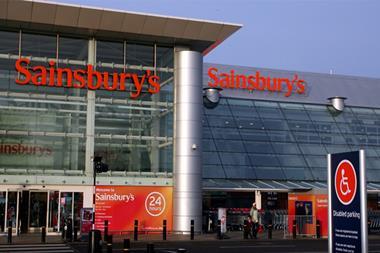
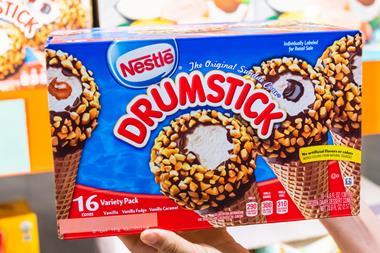
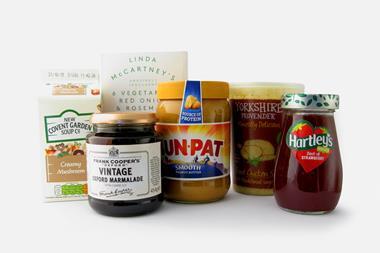

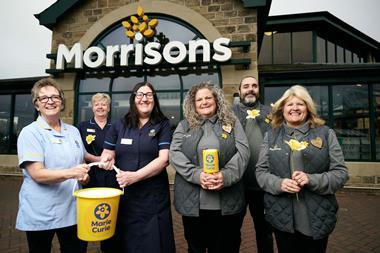

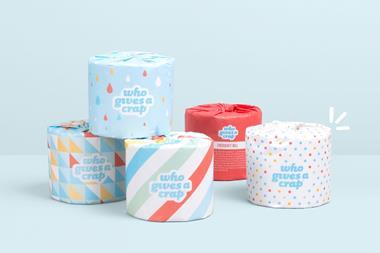
No comments yet